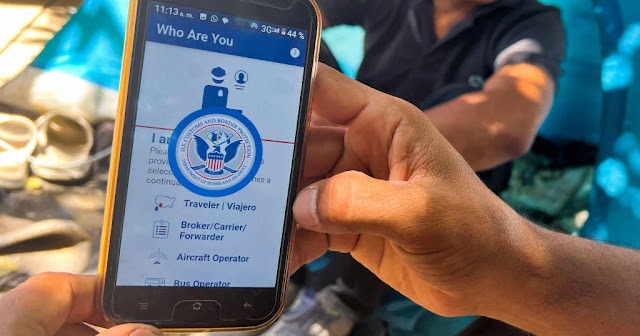In a sweeping move that will affect hundreds of thousands of people, the Department of Homeland Security (DHS) announced it is officially terminating parole protections for individuals who entered the United States using the CBP One app — a system implemented under the Biden administration to manage border crossings and asylum requests.
Nearly 985,000 people utilized the CBP One app to make appointments at ports of entry along the southern border, allowing them to lawfully enter the U.S. and, in many cases, receive temporary work authorization while pursuing asylum claims. Now, under the direction of DHS Secretary Kristi Noem and President Donald Trump, the administration is revoking that status.
“The Biden Administration abused the parole authority to allow millions of illegal aliens into the U.S., which further fueled the worst border crisis in U.S. history,” the DHS said in a statement. “Canceling these paroles is a promise kept to the American people to secure our borders and protect national security.”
Self-Deportation Notices Sent
DHS has begun sending email notifications to those impacted, instructing them to voluntarily leave the country. Migrants are being told to use a revamped version of the CBP One app — now rebranded as CBP Home — to facilitate their departure.
The move represents a stark reversal from previous immigration policy. Under President Biden, the CBP One app was developed to ease chaos at the border by organizing appointments for migrants seeking asylum and directing them to official points of entry. Critics of the policy argued it encouraged illegal immigration and overwhelmed border resources.
Who Is Affected — And Who Is Not
This policy change does not impact individuals who entered the U.S. through Uniting for Ukraine or Operation Allies Welcome, which covered Afghans evacuated during the U.S. military withdrawal. These humanitarian parole programs remain in place.
However, the latest announcement builds on earlier actions by DHS, which had already revoked parole for over 500,000 Cubans, Haitians, Nicaraguans, and Venezuelans who used the CBP One system with a U.S.-based sponsor. That group is expected to lose their parole protections on April 24.
The administration has not detailed how it will handle migrants who refuse to leave voluntarily, nor what legal recourse may be available to those impacted.
Trump Administration Shifts on Border Strategy
President Trump suspended the CBP One app on his first day in office, halting thousands of scheduled appointments for migrants at the U.S.-Mexico border, many of which had been booked weeks or even months in advance.
The move is part of a broader effort to reassert stricter immigration controls, a hallmark of Trump’s first term. The administration has already reinstated Remain in Mexico policies, accelerated deportation proceedings, and expanded detention capacity at key border regions.
Immigration advocates and legal experts warn that the mass revocation of parole status could create a humanitarian crisis and trigger a flood of legal challenges.
“This kind of blanket cancellation, without individualized due process or regard for ongoing asylum claims, raises serious constitutional and human rights concerns,” said one immigration attorney familiar with current litigation efforts.














